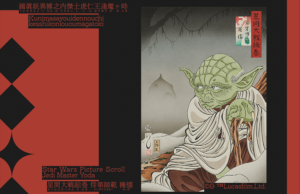Author: Mizuki Ichihira & Valeria japanese M-Words
When reading on a smartphone, we recommend turning the screen to landscape mode.

Learning a new language is always an exciting journey filled with challenges and yet a lot of discoveries. Along the way, you'll encounter words that many people like to use. They can have a special meaning or can only be a trend of the moment, but they will surely exist. Regardless, they undoubtedly exist in any language, the Japanese language makes no exception! So, let's explore five popular and useful Japanese M-words that can enhance your language skills.
Learn now the 5 useful M-Words you must know:
1. Muda・ むだ
Muda むだ (無駄) means "useless". It's an expression to use in everyday conversation.
In daily life, muda (むだ / 無駄) refers to activities or behaviors that serve no practical purpose and waste valuable time, energy, or resources. By being mindful of muda, we can make better use of our limited resources and focus on meaningful tasks.

| Japanese phrase | Romaji | English phrase |
|---|---|---|
| 泣いても無駄です。 | Naite mo muda desu. | Crying won't help. |
| そんなことは時間の無駄だ。 | Sonna koto wa jikan no muda da. | That's a waste of time. |
| そんなものを買うなんて、お金の無駄だ。 | Sonna mono o kaunante okane no muda da. | It's a waste of money to buy something like that. |
2. Muri・むり
Muri むり (無理) means "impossible". It's one of those short and clear expressions, especially for beginners to make a concise negative reply.
In addition, try to remember the expression "むりしないで!" (muri shinaide) which can be translated as "Take it easy/ Don't overdo it". You will hear that often in Japan, almost as a greeting to express concern about you, making sure you will take care of yourself.

| Japanese phrase | Romaji | English phrase |
|---|---|---|
| この宿題は一人では無理だ。 | kono shukudai wa hitori dewa muri da. | This homework is impossible to do alone. |
| わたしには無理だ。 | Watashi ni wa muri da. | I can't do it. |
| 無理を言うな! | Muri o iuna! | Don't be unreasonable! |
3. Mochiron・もちろん
Mochiron もちろん (勿論) is one of our M-words with a positive meaning: it means "of course / sure / certainly".
When someone says "mochiron," they express a strong agreement or affirmation, emphasizing that there is no doubt or hesitation in their response. Therefore, use it to agree to proposals or requests!

| Japanese Phrase | Romaji | English Phrase |
|---|---|---|
| 「一緒に行ってもいい?」「もちろん!」 | "Isshoni ittemo ii?" "Mochiron!" | "May I come with you?" "Absolutely!" |
| 「天ぷらは好きですか?」「もちろんです。」 | "Tempura wa suki desuka?" "Mochiron desu!" | "Do you like tempura?" "Of course!" |
4. Mottainai・もったいない
Mottainai もったいない (勿体無い) is one of the unique expressions of Japanese culture. There's no precise translation to this, so try to focus on the concept it expresses. The overall meaning when using もったいない is disagreement about something being wasted. Basically, it can refer to anything: material things, waste of time, or when someone "does not deserve" a certain thing.
By this expression, the speaker can disagree in a non-argumentative tone. In addition, he/she can express respect when a superior is commending him/her.

| Japanese Phrase | Romaji | English Phrase |
|---|---|---|
| なんてもったいない! | Nante mottainai! | What a waste! |
| こんなに天気がいいのに家にいるなんてもったいないよ。 | Konnani tenki ga ii noni ie ni iru nante mottainai yo. | It's a shame to spend such a nice day inside. |
| それは私にはもったいない言葉です。 | Sore wa watashi niwa mottainai kotoba desu. | I am not worthy of those words. |
5. Ma-ma-・まあまあ
Finally, the last of our Japanese M-words is Ma-ma- まあまあ, which means "decent, passable, so-so". It's perfect when the speaker wants to deliver a neutral and casual tone. It is normally used in a reply to the question ”how (どう)?”.
Furthermore, it's used to calm down a situation with the meaning "Oh, come on / now then...", like in the second example.

| Japanese Phrase | Romaji | English Phrase |
|---|---|---|
| 「試験はどうだった?」 「まあまあかな」 | "Shiken wa doudatta?" "Ma-ma- kana." | "How was the exam?" "Not so bad." |
| まあまあ、そんなに怒らないで。 | Ma-ma-, sonna ni okoranaide. | Now then, don't get so angry. |
Another point to be noted, while translating in reverse, English to Japanese, “okay” doesn’t always give the same meaning as ma-ma-. Depending on the context, okay can have various meanings. Ma-ma- is just one of them.
Hope you found this article useful!
Please register as a We member for free to join the conversation on this topic. Once registered, you'll receive a free interactive lesson as a gift to you!
Which of these Japanese M-words are you most excited to incorporate into your language skills?
↓


